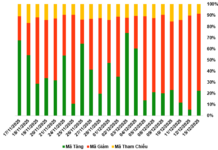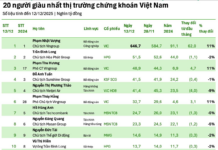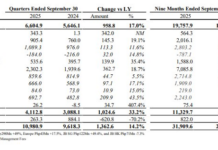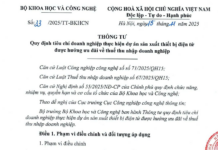Warning on Online Fraud During Tet Holiday
During the Lunar New Year in 2024, the Information Security Department of the Ministry of Information and Communications continuously issued warnings along with measures to identify and prevent various forms of online fraud. However, during the Lunar New Year period and especially after the holiday season, online scams still persisted as many people fell into traps due to their lack of awareness and knowledge.
Deception and theft through virtual red envelopes
Recently, Meta in Vietnam has warned users about common online scams during the Lunar New Year, including the use of virtual red envelopes.

Specifically, taking advantage of the Lunar New Year, electronic red envelopes have become increasingly popular, especially during the holiday season. However, besides the convenience, this feature also carries the risk of being exploited by malicious individuals to deceive and steal people’s assets.
Regarding electronic red envelopes, scammers exploit this feature by impersonating familiar individuals and sending virtual red envelopes via social media platforms or messaging apps, often with included links. If users click on these links, they may inadvertently provide personal information and become victims of fraud.
In addition, scammers also utilize the method of messaging to announce the receipt of Lunar New Year red envelopes from banks, but these messages are actually fake and deceptive. The content of these messages includes links to fake websites with names similar to official bank websites. Many people, eager to receive “red envelopes,” quickly follow the instructions and access the links in the message content. At this point, a fake website will automatically appear, with a similar interface and logo to the bank, requesting users to enter information such as phone numbers and passwords. By submitting this information, scammers gain control over people’s bank accounts.
In light of these situations, the Information Security Department of the Ministry of Information and Communications advises users to verify the identity of the sender before accepting electronic red envelopes. They should be cautious and alert to suspicious signs in messages, such as spelling errors, brand impersonation, or overly generous offers. Users should never provide personal information, account numbers, passwords, VNeID, OTP codes, national identity card information, or bank account information to any individuals or organizations through any means. They should not follow any instructions from unknown phone numbers.
Moreover, Meta also recommends that users enable two-factor authentication to protect their online accounts and reduce the risk of unauthorized access.
Exploiting AI to impersonate identities and steal assets
Recently, many people have fallen victim to financial scams that utilize Deepfake technology combined with artificial intelligence. Even when individuals make video calls and see the faces and hear the voices of their loved ones or friends, it does not necessarily mean they are truly speaking with them.

One such victim, Mr. N.T.H., an office worker in Hanoi, shared his experience of being contacted via Facebook Messenger by a friend who suddenly requested money and asked for a transfer to a bank account.
Although the account name matched his friend’s, H. had suspicions and requested a video call for verification. The friend agreed but the call lasted only a few seconds due to “poor internet connection,” as explained by the friend.
Seeing his friend’s face in the video call and hearing their correct voice, H. no longer had doubts and proceeded to transfer the money. However, only after the successful transfer did H. realize he had fallen into a hacker’s trap. Not only H., but many victims, including H.’s friends and relatives, were also deceived in the same way. The amount scammed from H.’s Facebook account alone amounted to millions of dong.
According to experts from Bkav, in H.’s case, the criminals gained control over his Facebook account, but did not immediately take complete possession. Instead, they silently monitored and waited for an opportunity to impersonate victims and request loans from their friends and relatives. The scammers used AI to create fake videos with the victims’ faces and voices. When asked to make video calls for authentication, the scammers agreed but quickly disconnected to avoid detection.
To prevent such incidents from recurring, the Information Security Department of the Ministry of Information and Communications has continuously issued warnings. Users are advised to exercise extra caution and not provide any personal information (ID numbers, bank account numbers, OTP codes, etc.) to any individuals via various means. Users should never transfer money to strangers over the phone, social media, or suspicious websites. When asked to borrow or transfer money into accounts via social media, users should use other authentication methods such as making phone calls or using alternative channels to confirm the request.
Rise of spiritual services and activities on social media
Spirituality is a cultural value that has been cherished from generation to generation, but in today’s society, many individuals exploit people’s beliefs for personal gain by falsely presenting spiritual services to deceive people and steal their assets. Many people have the psychological need to ward off bad luck from the previous year and seek good fortune in the new year, which has led to the prevalence of online spiritual services.
On social media platforms such as Facebook, TikTok, and websites, numerous individuals impersonate monks, sorcerers, etc., creating a “spiritual market” that pervades the online space. Each group can have hundreds of thousands of members participating.
Mysticism refers to the act of placing blind faith in vague, unnatural things that are not based on scientific principles, such as fortune-telling, healing through superstition, or seeking blessings through charms. Not a few people have become victims of online spiritual scams due to blindly believing in baseless fortune-telling, leading to negative consequences such as wasting time, money, causing anxiety and confusion. When many people blindly trust in luck, it creates opportunities for those who take advantage of online spiritual practices for deception and invisible exploitation, distorting the true value of spirituality.
To prevent such situations, the Information Security Department of the Ministry of Information and Communications advises people not to rely too much on online spiritual practices. Individuals should choose and seek reputable sources and not trust distorted forms of spiritual practices in the online space. Users should conduct thorough research and verify the true identity of individuals before engaging in any transactions on social media.
Scam tactic: Bank accounts with identical names
Recently, Mr. T.H. shared his experience of being tricked by criminals who hacked his Facebook account and used it to send messages to borrow money from his friends, but with a bank account that had the same name as his and even the same bank, only differing in the account number.

The scam method employed by the criminals is contrary to the expectations of the victims. First, the criminals will find ways to gain control over bank accounts with any name through the hiring of bank accounts belonging to students or people in rural areas. Alternatively, the criminals use someone else’s ID card to remotely open a bank account. These stolen or obtained personal documents can be from lost documents, theft, or the trade of personal information online.
Next, the criminals search for individuals with names identical to bank accounts on social media. They hack the individuals’ Facebook accounts, send links in messages to inject malicious code, or send emails containing links to fake websites that steal bank account information. When victims fall into the trap, the criminals quickly take over their Facebook accounts and send messages requesting loans or lure others with additional links using the victim’s Facebook account.
In response to this situation, the Information Security Department of the Ministry of Information and Communications advises people to be cautious before conducting any transactions on social media. Users should verify the identity of the counterpart before engaging in any transactions. Do not provide personal information, account numbers, passwords, OTP codes, or any other sensitive information to unknown entities or on any untrusted websites.
Impersonating military personnel to deceive and steal assets
Recently, authorities reported the emergence of online scams in many areas that involve impersonating military personnel to deceive and steal assets.
According to the Political Department of Military Zone 7, from July 2023 until now, there have been 75 cases of impersonating military officers or staff to deceive and steal assets in Military Zone 7 alone.
Mr. N.D.S in Song Ray commune, Cam My district, Dong Nai province, shared that he had been contacted three times in just one month by individuals impersonating military officers, placing orders for nearly 10 tons of fertilizer and plant protection products for his unit. In addition to phone calls, the scammers even wore military uniforms during video calls to establish trust and prevent suspicion.
In addition, some scammers call or send messages to civilians, claiming to be “commanders” or “managers” of their children, who are serving in the military, to inform them about disciplinary violations and request money transfers for compensation and damage caused by their children.
In reality, agencies and units do not conduct business transactions via phone calls as depicted in these situations. Therefore, individuals should remain calm, vigilant, and absolutely refuse to transfer money upon requests. They should promptly report such incidents to authorities for resolution and avoid falling into scammers’ traps.
In the face of these situations, the Information Security Department of the Ministry of Information and Communications urges citizens to increase their vigilance and take precautions against these tactics. Never provide personal information, account numbers, passwords, VNeID, OTP codes, national identity card information, or bank account information to any individuals or organizations without proper responsibility. Do not follow any instructions from unknown phone numbers. Local authorities need to strengthen public awareness through various media channels. Joint coordination between information and communication agencies and military and police units is crucial to unify information dissemination to the public, increasing their awareness, knowledge, and vigilance. It is also necessary to thoroughly investigate and punish perpetrators to set deterrent examples.
When discovering signs of fraud, citizens should immediately report the incidents to the nearest police agencies for resolution in accordance with regulations. In addition, citizens can follow and update information, situations, and signs of online fraud at the National Cybersecurity Portal. If signs of fraud are detected, submit reports to the Vietnam Information Security Warning Center.





































